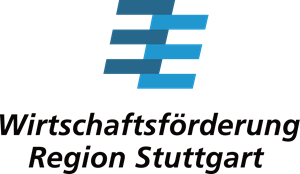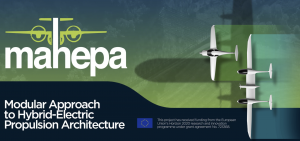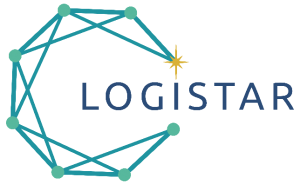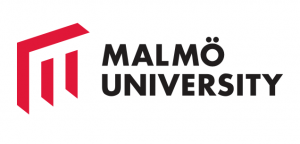Interview with Dr. Walter Rogg, head of the regional economic development corporation WRS
Sehr geehrter Herr Dr. Rogg,
With combustion engines on the way out, why are you supporting fuel cell technology in Stuttgart Region?
Road transport is a critical factor not only for the industry, but also for the society as a whole. The challenge of decarbonisation therefore is great and serious. This is the more so, as a technology is usually not simply replaced by another one. Typically, there are several solutions for different uses. This is why we are open to a range of alternative technological solutions. In transportation, besides battery power we also go for fuel cell power. We assume that both technologies will cover different segments of mobility.
But new technologies always mean new players and a new deal. Will Stuttgart defend its position as a leading region in the auto and mobility industry?
In Stuttgart we are confident that the present changes will indeed strengthen the region’s position in the mobility industry. Not only do we have leading car manufacturers in Stuttgart Region, but also one of the leading suppliers of auto electrics, now also involved in fuel cell production. Neighbouring regions host significant truck manufacturing industry. This results in a cluster that is unusually well suited for the transition of the industry. We do not have to reinvent the wheel like the newcomers, but we can concentrate on the new components.
However, the components are not only manufactured here. We also do central elements of research. In Stuttgart, we have the ZSW, a non-profit research organization, supported by the state of Baden-Württemberg and key Universities, as well as the relevant high-tech industry. One of their main branches, in the neighbouring region of Ulm, deals with fuel cell development. For us, it is very important that regional research covers the whole chain from hydrogen production to distribution and its various uses.
How do you as a regional development agency support the introduction of hydrogen technology?
We make sure that all stakeholders know about the chances of the technology and about the regional infrastructure. We also support the extension of hydrogen infrastructure, beyond mobility. And we base this on our own experience: The WRS was one of the first institutions to test a fuel cell vehicle in practice. It did normal service as a company car, used by our staff across the region, collecting valuable performance data for the industry already in an early stage of the development.
Do you think the industry is ready?
Yes. Of course, there are different opinions about the optimum speed and direction. But the automotive industry has done serious fuel cell research for decades. The transport industry knows that change will come and is prepared.

Dr. Walter Rogg
head of the Stuttgart Region Economic Development Corporation (WRS)
Share this article in your social media
Although we ensured to have up-to-date and accurate information, the publisher OPEN ENLoCC, nor the editor and the author, are not liable for errors and omissions. The publisher and the editor did not test products or services described and their inclusion does not imply any form of endorsement. By accepting advertisements in this publication, the publisher does not warrant their accuracy, nor accept responsibility for their contents. The publisher welcomes unsolicited manuscripts and illustrations but can accept no liability for their safe return. Reproduction (in whole or in part) of any text, photograph or illustration contained in this publication without the written permission of the publisher is strictly prohibited.
© 2022 OPEN ENLoCC All rights reserved.
 The publication of the European Review of Regional Logistics is supported by a grant of Wirtschaftsförderung Region Stuttgart GmbH (WRS).
The publication of the European Review of Regional Logistics is supported by a grant of Wirtschaftsförderung Region Stuttgart GmbH (WRS).
European regional review, Issue 2022/1
Other articles in this issue

Stuttgart Region’s position on hydrogen
Interview with Dr. Walter Rogg, head of the regional economic development corporation WRS Sehr geehrter Herr Dr. Rogg,With combustion engines on the way out, why
ST4W: Data flows for smart waterways
The ST4W (Smart Track for Waterways) project is supported by the INTERREG NWE programme of the European Union. It aims at promoting and increasing the
SMART-CORRIDORS project
Smart Supply Chain and Intelligent Intermodal Corridor Management for the China-Europe land-sea express line.” Recent research and business practice pinpoint that the integration of new
Promoting Hydrogen in Valencia
On 13 October 2021, the “H2VLC Valencia Hydrogen Valley” project was presented at the Valencia City Council headquarters, with the participation of more than 40

MAHEPA: Towards environmentally friendly hybrid-electric short haul air transportation
The Challenge The future competitiveness of the aviation sector largely depends on its environmental footprint. With the aviation industry responsible for 2 % of all

LOGISTAR – transport operations by horizontal collaboration, relying on real-time data
The LOGISTAR objective is to allow effective planning and optimizing of transport operations in the supply chain by taking advantage of horizontal collaboration, relying on
Hydrogen for transport in Stuttgart Region
Why is hydrogen a topic in Stuttgart Region? Stuttgart Region is a high-density area in the center of Europe. Its 2.8 million inhabitants rely heavily

FEDeRATED: a viable network of platforms for data sharing in freight transport and logistics
On 24th of November 2021 the Mid Term Review meeting of the FEDeRATED project was held at the Codognotto headquarters in Salgareda (Italy). The project

A relational business model of e-logistics facilities
“How come logistics operators’ return on investments is so low despite that warehouse operations are very cost efficient?”, is a strategic question that I and
19th European Transport Congress of the EPTS Foundation e. V. held in Maribor
On 7 and 8 October 2021, the University of Maribor hosted the international scientific congress “European Green Deal – Challenges and Solutions for Mobility and

Stuttgart Region’s position on hydrogen
Interview with Dr. Walter Rogg, head of the regional economic development corporation WRS Sehr geehrter Herr Dr. Rogg,With combustion engines on the way out, why
ST4W: Data flows for smart waterways
The ST4W (Smart Track for Waterways) project is supported by the INTERREG NWE programme of the European Union. It aims at promoting and increasing the
SMART-CORRIDORS project
Smart Supply Chain and Intelligent Intermodal Corridor Management for the China-Europe land-sea express line.” Recent research and business practice pinpoint that the integration of new
Promoting Hydrogen in Valencia
On 13 October 2021, the “H2VLC Valencia Hydrogen Valley” project was presented at the Valencia City Council headquarters, with the participation of more than 40

MAHEPA: Towards environmentally friendly hybrid-electric short haul air transportation
The Challenge The future competitiveness of the aviation sector largely depends on its environmental footprint. With the aviation industry responsible for 2 % of all

LOGISTAR – transport operations by horizontal collaboration, relying on real-time data
The LOGISTAR objective is to allow effective planning and optimizing of transport operations in the supply chain by taking advantage of horizontal collaboration, relying on
Hydrogen for transport in Stuttgart Region
Why is hydrogen a topic in Stuttgart Region? Stuttgart Region is a high-density area in the center of Europe. Its 2.8 million inhabitants rely heavily

FEDeRATED: a viable network of platforms for data sharing in freight transport and logistics
On 24th of November 2021 the Mid Term Review meeting of the FEDeRATED project was held at the Codognotto headquarters in Salgareda (Italy). The project

A relational business model of e-logistics facilities
“How come logistics operators’ return on investments is so low despite that warehouse operations are very cost efficient?”, is a strategic question that I and
19th European Transport Congress of the EPTS Foundation e. V. held in Maribor
On 7 and 8 October 2021, the University of Maribor hosted the international scientific congress “European Green Deal – Challenges and Solutions for Mobility and